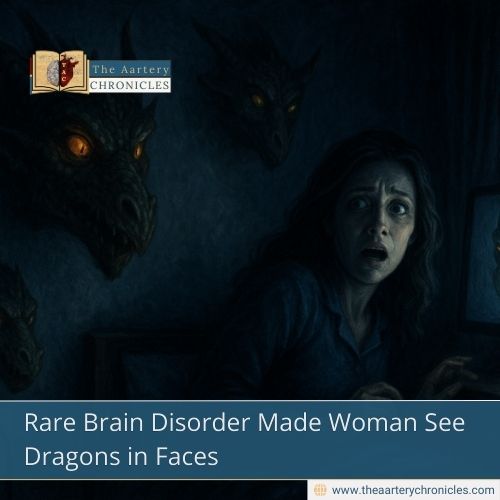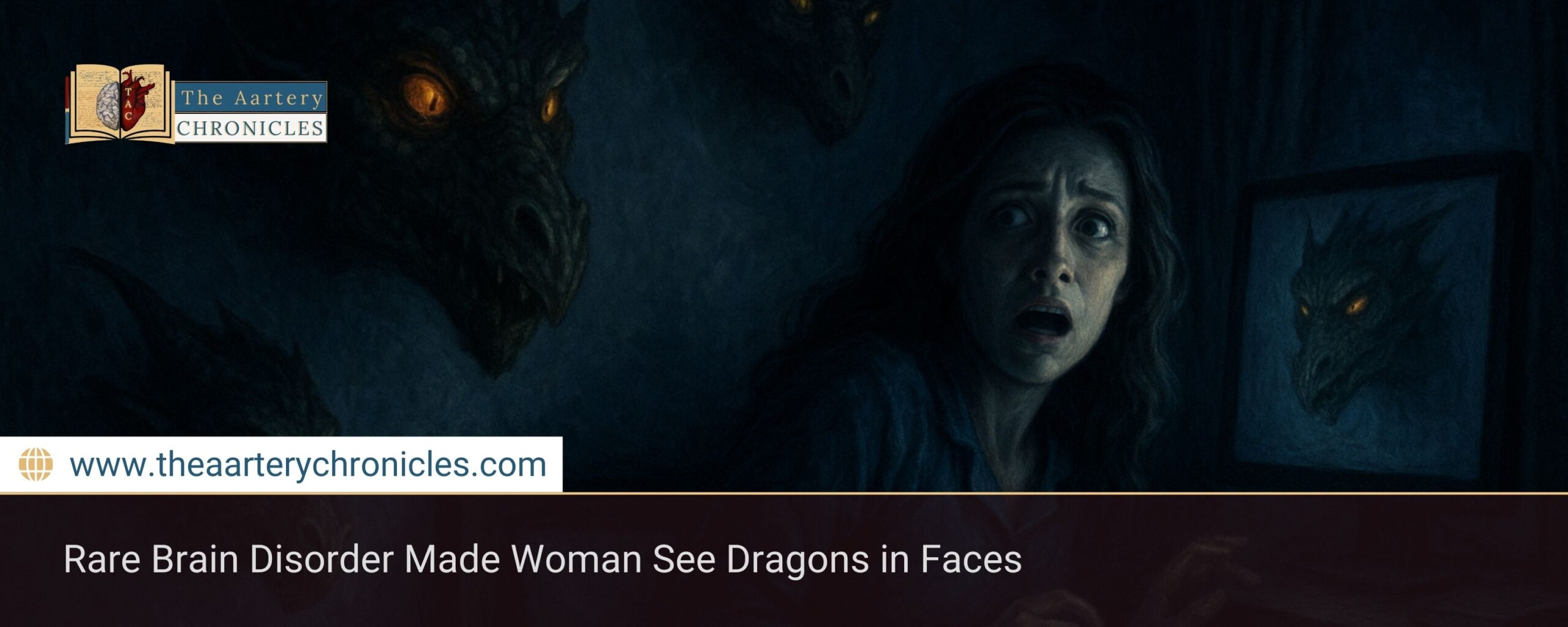

Rare Brain Disorder Made Woman See Dragons in Faces
A rare brain condition called prosopometamorphopsia once caused a woman in The Hague to see human faces transform into frightening “dragon-like” figures. This unusual case, first reported in The Lancet in 2014, highlights the complexity and disruptive nature of visual distortions for individuals living with the disorder.
The Unusual Symptoms: Faces Turn Into Dragons
In 2011, a 52-year-old woman visited a psychiatric clinic in The Hague after struggling her whole life with strange visual experiences. She explained that when she looked at people, their faces would slowly shift into disturbing, reptile-like versions.
According to her description, the faces turned dark, developed long pointed ears, a snout, scaly skin, and brightly colored eyes. These hallucinations weren’t limited to people; she also saw similar dragon faces floating out of walls, sockets, and even computer screens. At night, her visions became even stronger in the dark.
Although she could still recognise who people were, the distorted appearances left her feeling isolated, anxious, and depressed, leading her to struggle with alcohol misuse for years.
What Is Prosopometamorphopsia?
Prosopometamorphopsia is a rare neurological disorder in which people see faces as distorted or oddly changed. Unlike prosopagnosia (face blindness), where individuals cannot recognise faces at all, those with prosopometamorphopsia can still identify people, but the faces appear unnaturally warped.
The condition can cause facial features to appear droopy, swollen, stretched, or distorted. Sometimes only one side of the face looks distorted, while other times the whole face seems misshapen. Patients may even see their own reflection altered in mirrors.
Common symptoms include:
- Drooping or misplaced eyes, nose, or mouth
- Blurry or warped facial images
- Hallucinations of faces morphing into scary or cartoon-like shapes
- Increased distortions at night or in stressful situations
Because of these disturbing visual changes, many patients experience fear, stress, and difficulty maintaining social interactions.
How Doctors Treated Her Condition
Doctors first provided the woman with detailed psychoeducation about her disorder. They stopped her previous medications and began treatment with valproic acid. For the first time in her life, she had days without any hallucinations.
However, she soon developed a side effect known as “auditory sleep starts,” in which she heard loud bangs during sleep. To address this, doctors switched her treatment to rivastigmine. This adjustment helped control both the auditory symptoms and the visual distortions enough for her to live a normal life.
With treatment, she was able to keep her job, improve her relationships with colleagues, and function much more comfortably in daily life.
Conclusion: Why Awareness Matters
Although extremely rare, prosopometamorphopsia shows how the brain can alter our perception of reality in dramatic ways. Early diagnosis and the right treatment can make a major difference, helping patients regain control of their lives.
By sharing unusual cases like this, doctors hope to raise awareness of rare neurological conditions and ensure people experiencing similar symptoms know that help is available.
Source: Inputs from various media Sources
I’m a pharmacist with a strong background in health sciences. I hold a BSc from Delhi University and a pharmacy degree from PDM University. I write articles and daily health news while interviewing doctors to bring you the latest insights. In my free time, you’ll find me at the gym or lost in a sci-fi novel.
- Priya Bairagi
- Health News and Updates,People Forum
- 1 September 2025
- 20:00








